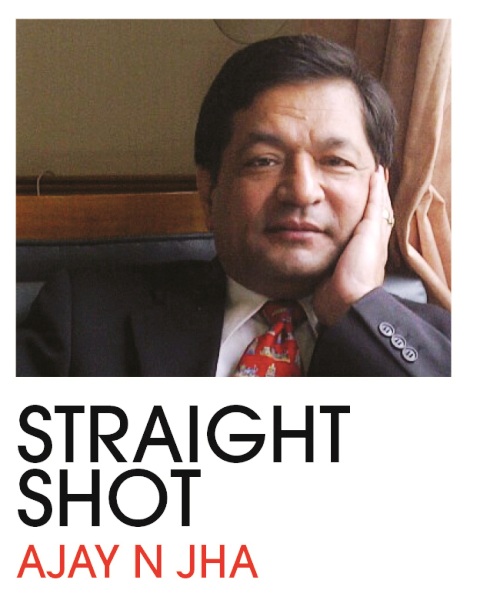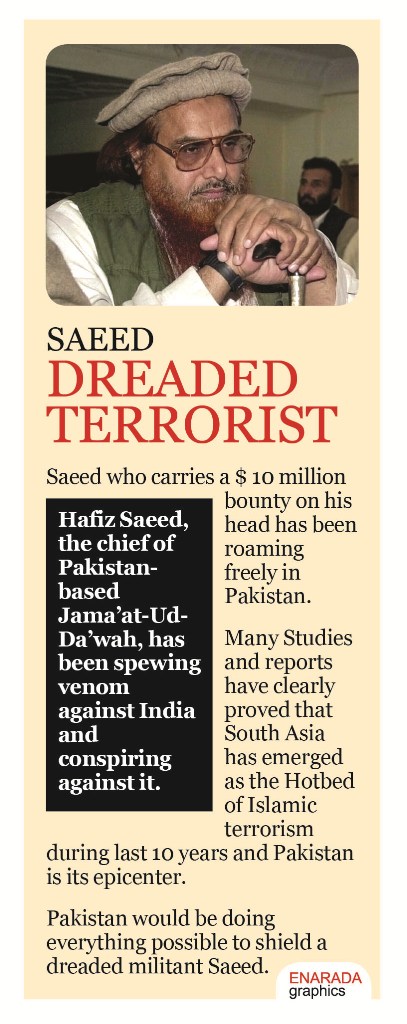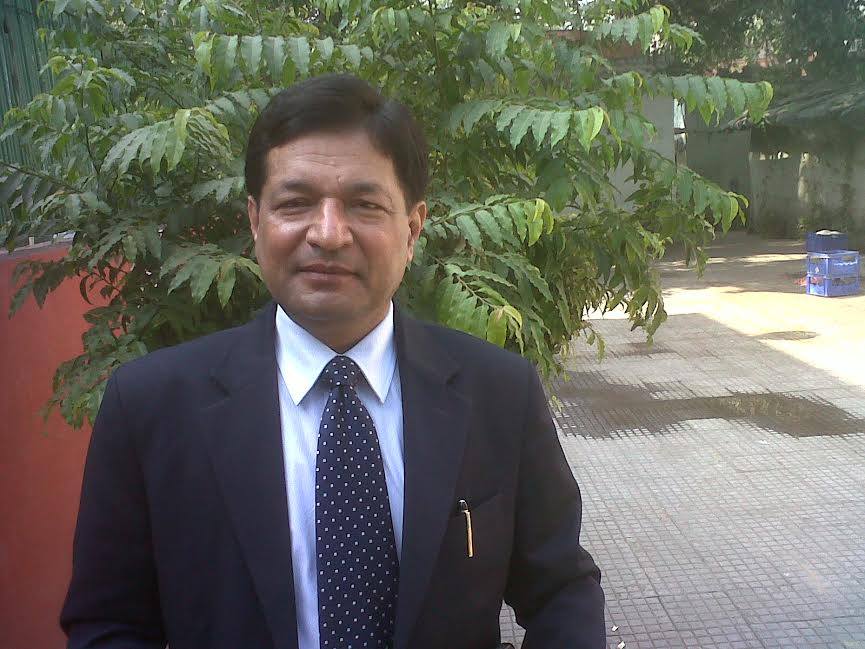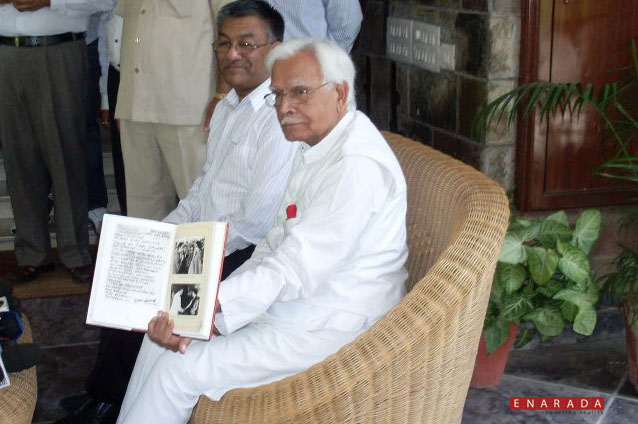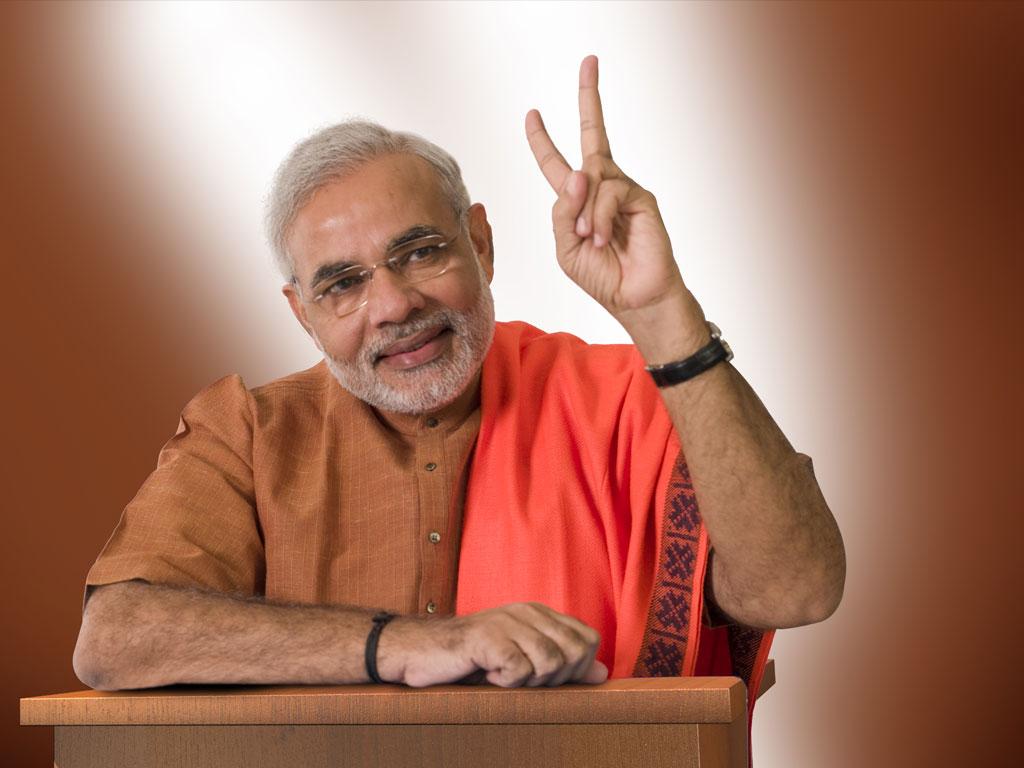ENARADA, New Delhi
By Ajay N Jha
Jamat-Ud-Dawa supremo Hafiz Saeed’s threat on 9th August to conduct an attack in Delhi is like rubbing salt into wound for India. The dreaded terrorist, who carried a $ 10 million bounty on his head and has been roaming freely in Pakistan, said this while addressing a rally in Pakistan’s port city Karachi.
He said that “Jehadis should plan to attack the national capital in a similar manner as it was carried out in 2000 at the Red Fort.”
The December 22, 2000 Red Fort attack saw LeT men sneaking into the 17th century monument and opening indiscriminate fire on the guards of seventh battalion of Rajputana Rifles, killing three persons, including a civilian. Saeed has also been the mastermind of 26/11 terror attacks in Mumbai and has been supporting many Islamic terrorist groups in India including SIMI and IM.
Just a day before that, sayeed had led Friday Eid pyares at Lahore and tweeted that “time is near when those oppressed in Kashmir, Palestine and Burma will celebrate Eid in the air of Freedom”. In his second Saeed said, “Time is near when those oppressed in Kashmir, Palestine and Burma will celebrate ‘Eid’ in the air of Freedom – Insha’Allah. “So, we say Eid Mubarak to you in these testing times; soon world will say Eid Mubarak to you after your triumph.” Sayeed further tweeted that “ALLAH will not waste your Sacrifices, Ummah will be glorified, Islam will be strengthened, that time is very near #Kashmir,” he tweeted from his account ‘@HafizSaeedJUD’.
Sayeed has been using every opportunity to poke and provoke India and he has been using every means- from his press conferences, public rallies to social media like facebook and Twitter in this agenda. India has repeatedly asked Pakistan to bring Saeed to justice for masterminding the 2008 Mumbai attacks in which a total of 166 people, including six Americans, were killed.
Saeed has been more vocal than before and the spurt in terrorist infiltration from Pakistan has been at a five-year high. India’s security establishment fears this to grow exponentially after the US withdrawal of troops from Afghanistan in 2014. India’s threat perceptions of being a major terror target from Pakistan-sponsored groups have sharpened in the recent past, as it has become clear that supposedly India-centric groups like Laskar-e-Taiba(LeT) and Jaish-e-Mohammed are much closer to Al-Qaida than ever before.
A recent report by the UN Security Council on Al-Qaida highlights the dangers for India as “Lashkar-e-Taiba continues to provide advanced terrorist training, including on improvised explosive devices”. The report says that “Although recruiting primarily from the Punjab province of Pakistan, Lashkar-e-Taiba continues to be active in Afghanistan and India as well as Pakistan. Its transnational reach and its highly specialized training remain a cause for concern. “The report further says that ‘The convergence of interests’ of al-Qaida and LET not only puts India in the cross hairs of jihadi activity, but it would also mean their interests would coincide with the Pakistan army’s intentions vis-a-vis India.
Many independent research bodies and Institutions, despite repeated denial of the Pakistani establishment, have enlisted more instances of terrorists and Pakistan forces working together and keeping the LoC more active. The media reports about ‘Pakistan PM, Nawaz Sharif’s party, PML(N) recently having allocated $620,000 to facilities run by Hafiz Saeed led Jamat-Ud-Dawa (JuD), parent body of LeT, highlighting the blurred lines between the establishment and terror groups.
Hafiz Saeed, the chief of Pakistan-based the so-called “socio-cultural organization” Jama’at-Ud-Da’wah, has been spewing venom against India and conspiring against it. From encouraging terrorism in Jammu and Kashmir to masterminding the 26/11 attack, he has been involved in many such activities that have time and again come in the way of normalizing bilateral relations between India and Pakistan, contributing to the deterioration of ties. But when it comes to catch hold of this terrorist, the Pakistan government is always found wanting. His free movement in Pakistan, hate speeches against India was expected to be curbed by Nawaz Saharif government. But he seems to be following a two pronged policy of velvet gloves and iron fist at the same time.
That Saeed was the mastermind of the 26/11 Mumbai terror attack has been proven by the confession of Ajmal Amir Kasab, the lone terrorist caught alive. By not arresting or restraining Saeed, the Pakistan government seems to be supporting his mission of creating an anti-India atmosphere in Pakistan. In guise of providing social service through madrasas and hospitals, Saeed is increasing his popularity among the masses, especially among the followers of a particular ideology. He keeps on misleading the Pakistanis. The presence of terrorists like Saeed and their destructive thoughts and acts have not only isolated Pakistan from the world, many countries are in fact talking about declaring Pakistan a “terrorist state.”
The decade of US presence in Afghanistan has been beneficial for India. Not only has India vastly improved its own presence in Afghanistan. Having lived for a decade or more under the protection of the US in Afghanistan, India will have to fend for itself, its interests and people, as well as ensure that the Kabul government does not fall prey to Taliban and other al-Qaida affiliates. The possibility that Al-Qaida may strike roots in the Afghanistan-Pakistan region again has security implications for India.
Many Studies and reports have clearly proved that South Asia has emerged as the Hotbed of Islamic terrorism during last 10 years and Pakistan is its epicenter. There has been at least 200 percent rise of such radical Jehadi outfits and the new generation of terrorist leaders taking the lead and becoming more lethal in their words and actions. Terrorist groups are increasingly preferring to work collectively even when there is little ideological convergence among their objectives.
Moreover, the crackdown on such Jehadi and sectarian organizations by the government has only backfired, triggering large scale militant Islamic consolidation and subsequent retaliation. Further, the US led war in Pakistan’s neighborhood has only aggravated the situation and those extremist forces which had initially been pushed to the wall, have started re-grouping and recruiting their cadres in rural pockets. No wonder then that South Asia has the highest concentration of Islamic Jehadi groups. According to one estimate, there are 117 extremist groups and Jehadi organizations with cross-border linkages and they have been operating with impunity throughout South Asia. India also has got approximately 50 such active or dormant terrorist Tanzeems by now. Hafiz Saeed has been playing the role of interlocutor among them and at the same time, remained one of the sources of Pakistan’s covert operations against India all these years.
Pakistan government has always remained in ‘denial’ mode with regard to Saeed despite the fact that it has earned more bad name internationally because of him over last few years. It is indeed bizarre that a man carrying a $10 million bounty on his head and who has been charged by the USA and India for links to terrorism and hijacking, walks around freely in major city centers of Pakistan, is invited for television interviews and to lead Eid prayers and is running Pakistan’s fastest growing charity Organizations like Jamat-Ud-Dawa(JUD) and Difa-e- Pakistan Council(DPC). What is all the more shocking and slanderous is that while the US placed a handsome bounty on his head, it has remained fairly silent over the issue ever since and has not been pushing pakistani government to take any action against Saeed.
There are many reasons why Pakistan would like Haifz Saeed to continue his tirades against India as it indirectly suits its own agenda.
1. One reason why Saeed has been left alone by the Pakistani establishment is the perception that while he may be a threat to India at the moment, he and his followers are not a threat to Pakistan. According to one commentator, the security establishment of Pakistan categorizes militant threats into three spheres: a) groups that are threat to Pakistan b) groups that are threat to both Pakistan and the US and c) groups that are threat to only the USA, India or any other country. For Pakistan, Hafiz Saeed falls in the third category
3. A section of Pakistani military establishment also thinks that militants can only understand the language of another militant and Saeed could be a vital instrument in bringing about this transformation on behalf of the establishment. Saeed, according to them, is a perfect mix of what the establishment requires. Saeed is not only anti- Indian down to the bone but also a Pakistani patriot in the sense that he would not rise up against the Pakistani State.
4. Haifz Saeed is considered a radical enough by all types of militants which allows him to sit down and negotiate with groups like the sectarian Laskhar-e- Jhangvi(LEJ) and anti- government Tehreek-e-Taliban Pakistan. Saeed claims that he has recently transformed and re-branded himself as a political and social actor renouncing violence altogether even as the truth is bang opposite. The Pakistani establishment thinks that perhaps he could play a significant role by leading a Sinn-Fein style of transformation of existing militant groups in Pakistan. Saeed is increasingly looked upon as a key figure who, after the withdrawal of US forces from Afghanistan in 2014, could mobilize the armed militants from different factions and either pacify their animosity towards Pakistan State or encourage their evolution into political actors.
5. According to many observers, Hafiz Saeed is the new face of evolution of militancy in Pakistan and now, his transformation as a political actor along with his charismatic ability to mobilize thousands of people is what makes him remarkable in the eye of Pakistani establishment which is desperately seeking ways to counter terrorism in Pakistan during and after the withdrawal of US forces from Afghanistan.
6. While Saeed was once used as a pivotal player against India in Kashmir, Nawaz Sharif government is more worried and concerned with the internal threat that Pakistan faces from groups like the TTP. That is how his importance is grown and he continuing in his both roles with greater protection from the Pakistani establishment.
7. This makes all the more sense when juxtaposed with the recent rise of Difae- Pakistan Council which is a consortium of over 36 right wing and religious organizations. DPC is one of the movements led by Saeed that had united and mobilized followers of different radical ideologies which the Pakistani establishment feels would create a force to broker peace between the government and the militants.
8. Thus Hafiz Saeed is seen as a middle-man between the anti-State militant groups and the security establishment of Pakistan and for this reason, Pakistan is unlikely to act against or compromise on Hafiz Saeed despite overwhelming pressure from India and the dossier of evidence seeking between him and the 26/11 Mumbai attacks.
9. The crux is that Haifz Saeed has successfully maintained his relevance and importance to the establishment of Pakistan and is now being cultivated as a major political actor who would ensure that the militants disarm and would negotiate peace on behalf of them. He appears to have caught up Nawaz Sharif by the balls as Pakistan does not seem to have any other option to fight the growing number of militants and until this policy bears fruit, Pakistan would be doing everything possible to shield a dreaded militant Saeed.
More than that however, it is the monumental failure of India’s diplomacy which has not been able to create worldwide opinion against Pakistan and declare it as a terrorist State. India would have to re-define re-draft its strategy to bring in more pressure on Pakistan to curb its anti- India adventure but also make it understand that those who live with sword, also die with it.
(Posted on August 11, 2013 @ 11.10am)
(Ajay N Jha is a veteran journalist from both Print and Electronic media. He is the President and CEO of WICS Global Communications. His email id is Ajay N Jha <ajayjha30@gmail.com> )
The views expressed on the website are those of the Columnists/ Authors/Journalists / Correspondents and do not necessarily reflect the views of ENARADA.


